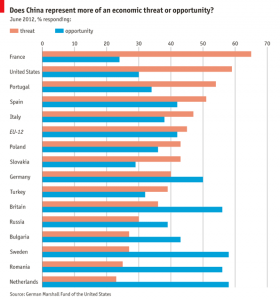
Burberry’s profits have not been meeting its shareholder’s expectations. Its sales growth has fallen from 30% to 20% in China, the largest luxury goods market. Most analysts say that this slump in sales growth is mainly due to China’s economic slowdown, but shares in LVMH only went down by 4%, while Hermès sales in China has maintained the the same rate of growth.
Since Burberry has done terribly compared to its peers in the same environment, it is possible that its latest business strategy in is fundamentally flawed. CEO of Burberry, Angela Ahrendts, has been fervently advocating the use of technology in Burberry’s marketing strategy. Consumer habits have been shifting toward this direction, but it is questionable as to whether or not the luxury goods industry should also follow the technology trend. Burberry products are very expensive, so buying one is quite a big decision. It is very difficult as a consumer to make that decision without direct perceptual inspection of the real, tangible product. In addition to the lack of direct contact with the product, there is this inherent feeling of insecurity associated with digital transaction, making many consumers feel uncomfortable about paying large sums over the internet.
Upon the examination of consumer psychology, Ahrendts’ failure is due to the simple fact that most people feel more comfortable buying luxury goods in shops rather than online.
Work Cited:
“High-tech fashion: Burberry goes digital.” The Economist. N.p., n.d. Web. 1 Oct. 2012. <http://www.economist.com/node/21563353>.
“Sand in our stilettos: Burberry’s ‘Retail Theatre’ Concept.” Sand in our stilettos. N.p., n.d. Web. 18 Nov. 2012. <http://sandinourstilettos.blogspot.ca/2010/09/burberrys-retail-theatre-concept.html>.

